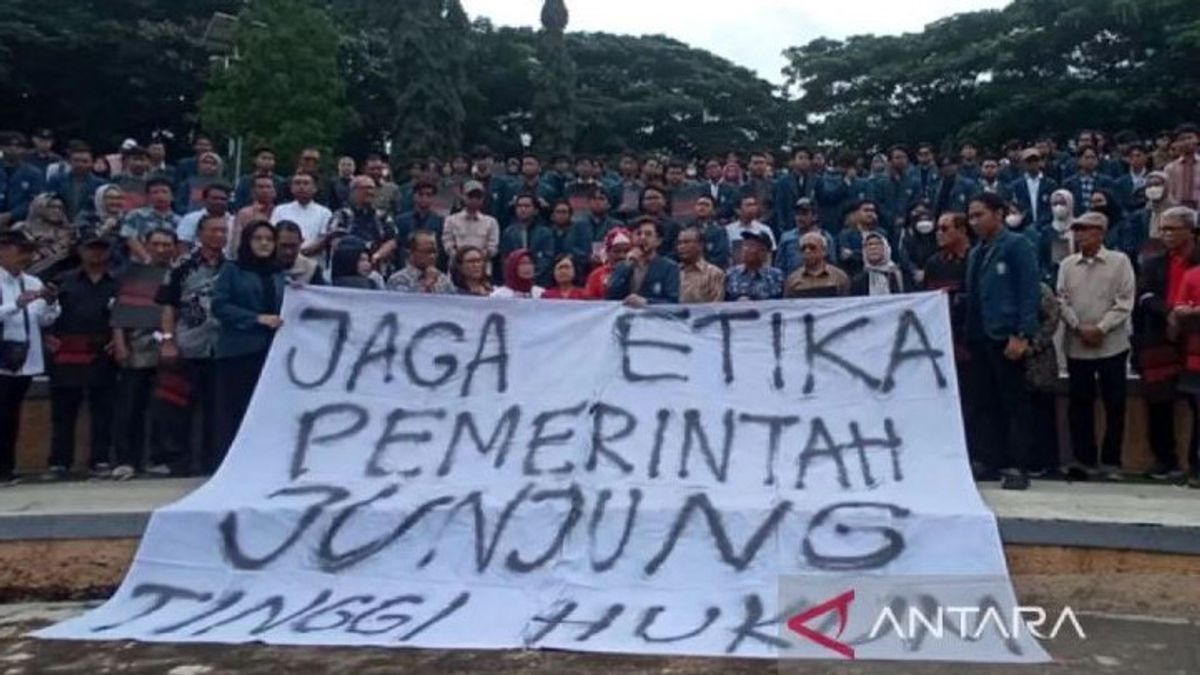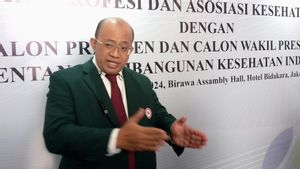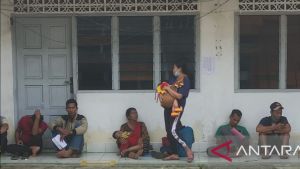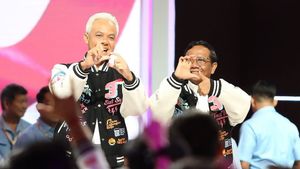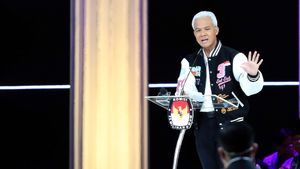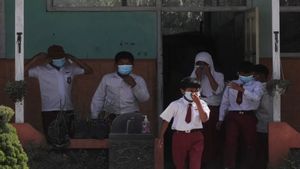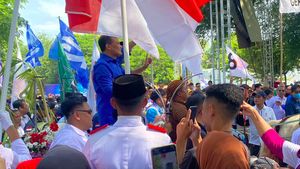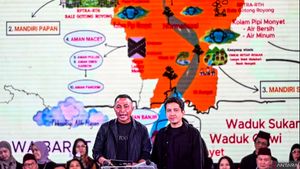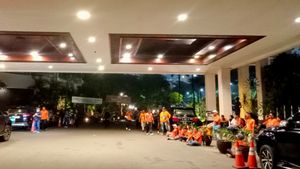JAKARTA The academic community's movement has the potential to expand if the government does not provide a positive response. The accusation that this movement is accommodated by the interests of the group is considered to only trigger public anger.
Recently, the academic community from various universities in Indonesia has been busy criticizing the attitude of President Joko Widodo (Jokowi) towards the 2024 General Election.
In essence, the campus petition movement is a form of moral unrest over what happened in Indonesia. Initially there were Gadjah Mada University and the Islamic University of Indonesia which expressed concern about the current condition of democracy. The movement was then followed by the University of Indonesia, Andalas University, Padjadjaran University and other campuses.
Most recently, the Jakarta State University academic community (UNJ) conveyed the 'Declaration of Rawamangun' so that the 2024 General Election can take place cleanly and peacefully.
The reading of the declaration was attended by professors, lecturers, and students held at Plaza UNJ, Rawamangun, Jakarta Timus, Tuesday (6/2/2024).
UNJ Sociology Lecturer Ubedilah Badrun said this declaration was based on concerns from the academic community regarding the various realities of social, economic and political life procedures recently.
"Kamicivitas academicaUNJ sebagai universitas perjuangan yang memiliki jejak perjalanan sejarah panjang sejak kelahirnya hampir enam dekade lalu dengan penuh kesadaran menyampaikan kekhawatiran yang dalam atas berbagai realitas tata ketuapan sosial, ekonomi dan politik negeri kita bertahun-akhir ini," kata Ubedilah, dikutipAntara.
This campus petition movement is a form of anxiety for professors over the destruction of Indonesian democracy. Its roots began with ethical violations at the Constitutional Court, which passed Jokowi's eldest son, Gibran Rakabuming Raka, advancing in political contestation.
What Jokowi did could no longer be tolerated because he used the Constitutional Court to perpetuate dynasties and power.
Executive Director of the Indonesia Public Institute (IPI) Karyono Wibowo said that the movement on a number of campuses did not occur without reason. He explained that when the campus was moving, it meant that there had been considerations, going through studies and identification of the problem until it came to the conclusion that the government had deviated.
When a campus moves, it means it's a form of concern for what happens. The campus is the last moral guard, when there is a movement this means it has reached the anticlimactics," Karyono said when contacted by VOI.
"Who else if it's not a campus that criticizes to remind the authorities of constructive criticism. This is done so that the authorities return to the right path, return to the right track, in accordance with their ideals, ideologies, Pancasila, laws, early vision and mission," he continued.
In a country that adheres to democratic understanding, according to Karyono, criticism of the government is a natural thing. But unfortunately, the movement received a cold response from the palace.
SEE ALSO:
Presidential Special Staff Coordinator Ari Dwipayana said President Jokowi respects the rights of everyone to have opinions, including the academic community. However, he conveyed allegations that there was a political strategy for partisans for electoral interests in the midst of opinion fights in the election year.
"We observe that in the political year, ahead of the election there must be an opinion fight, opinion convoy. The battle of opinion in political contestation is something that is also natural. Moreover, it is related to partisan political strategies for electoral politics," said Ari at the Ministry of State Secretariat Complex, Friday (2/2/2024).
Karyono also regretted the attitude of the palace which actually launched a counterattack by calling this movement organized by certain groups. He emphasized that this is a painful accusation and is considered harassment of the academic world.
This accusation is painful and dangerous. Accusations like this will actually give the impression that the anti-critic ruler, "said Karyono.
He is worried that the counterattack launched by the ruling camp will only provoke a spike in the anger of intellectuals which could have a major impact.
According to Karyono, the authorities have the right to answer the academic community movement, but that does not mean that the counter attack is in the form of baseless accusations. Responding to the concerns of professors by providing data and facts, Karyono said, would be much more elegant than carrying out attacks.
If the authorities respond with a counterattack, it means it's just a matter of time, there will be a spike in intellectual anger, he added.
"So all of this depends on the government's response, if the response attacks, the negative response will make anger increase, thus accelerating the movement to the streets," he said again.
Finally, Karyono Wibowo reminded the government to be wiser in responding to the academic community movement, and to receive criticism from leaders including interfaith leaders so that this movement does not lead to chaos.
The English, Chinese, Japanese, Arabic, and French versions are automatically generated by the AI. So there may still be inaccuracies in translating, please always see Indonesian as our main language. (system supported by DigitalSiber.id)
